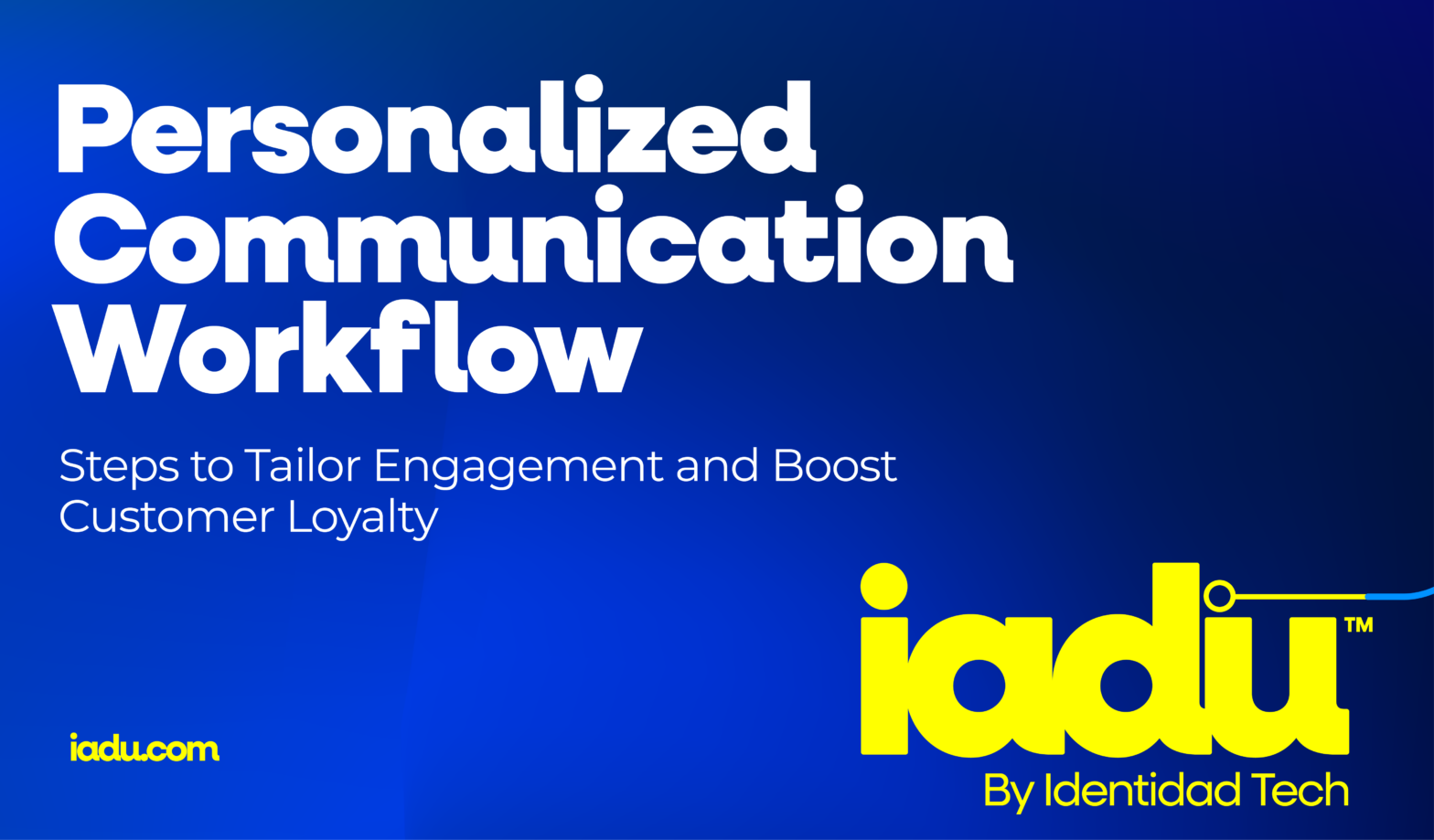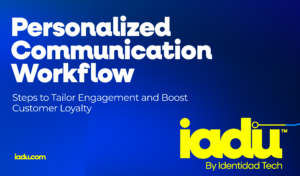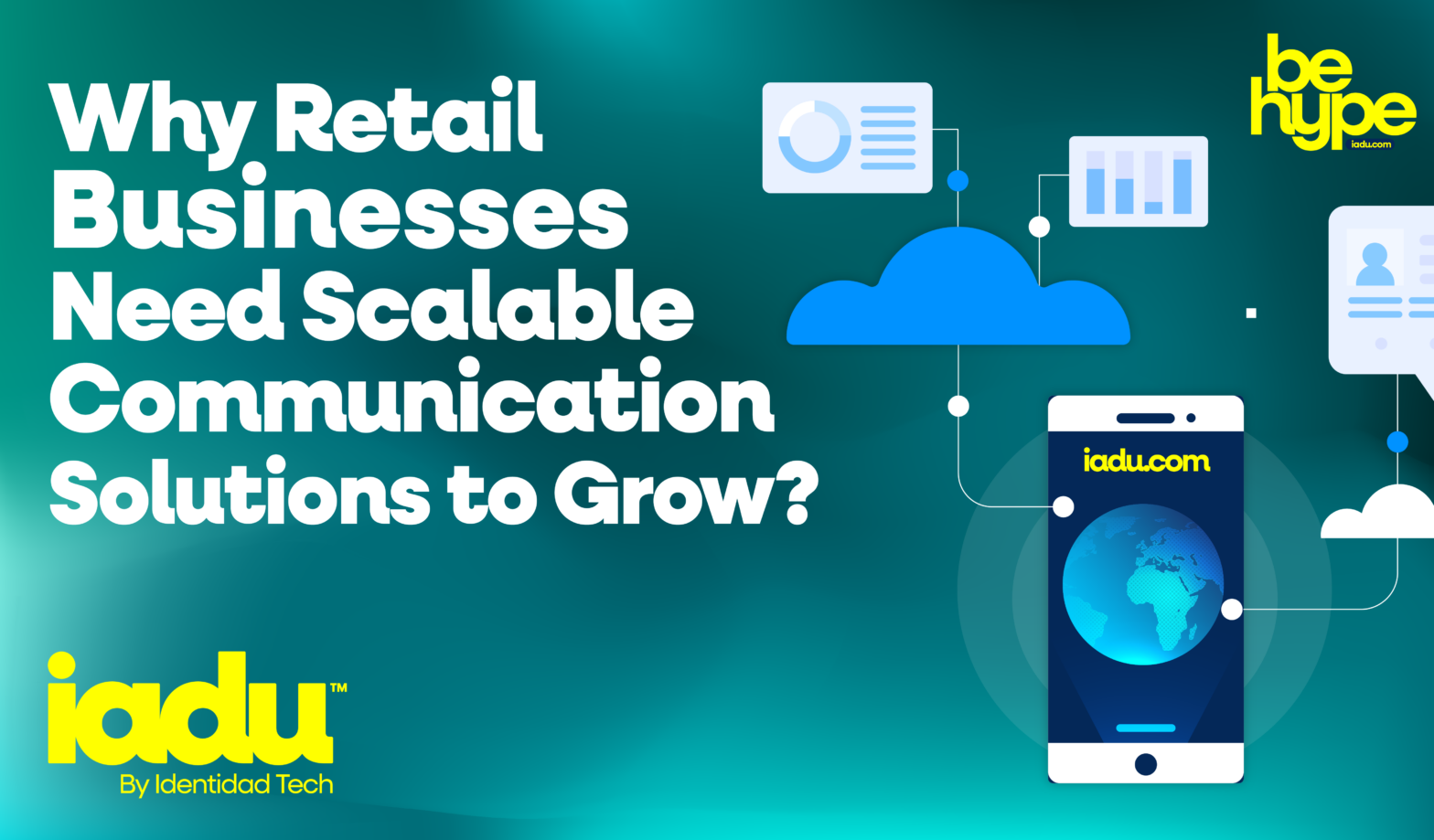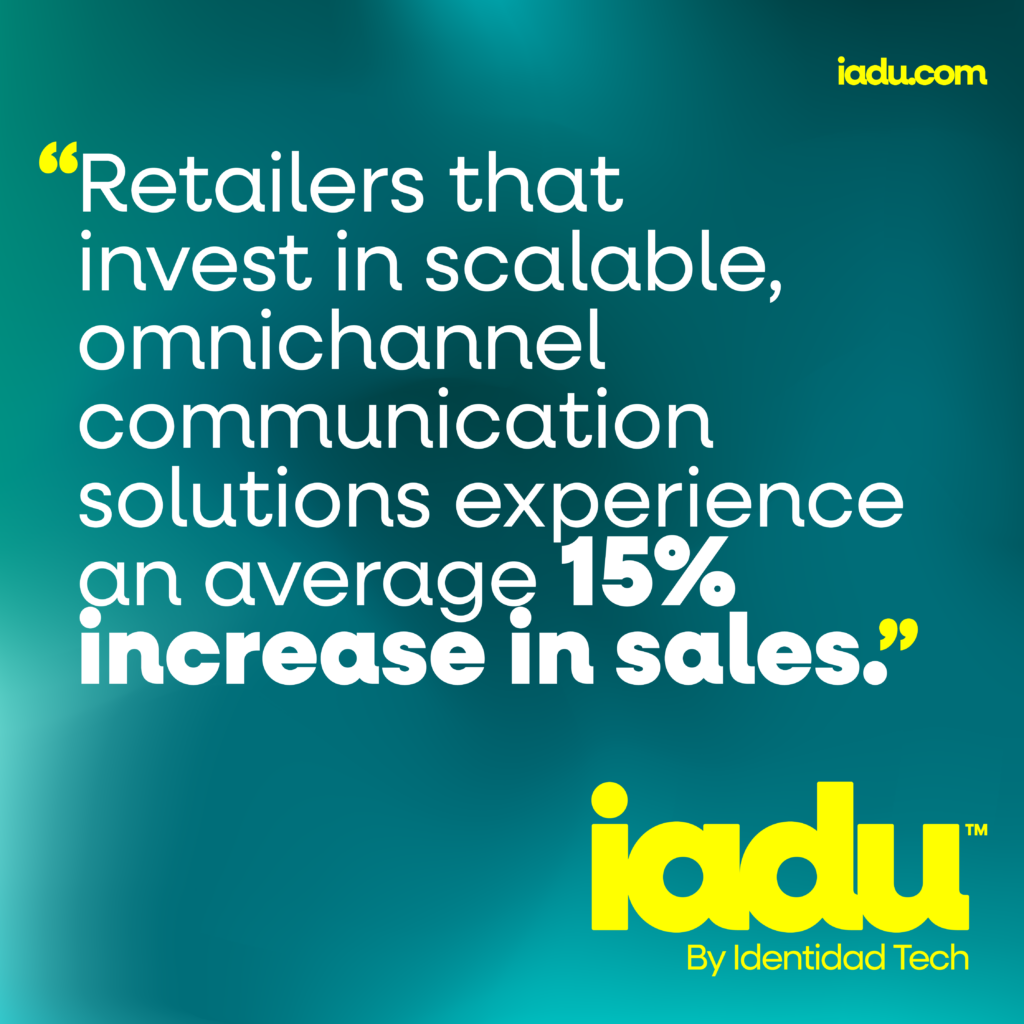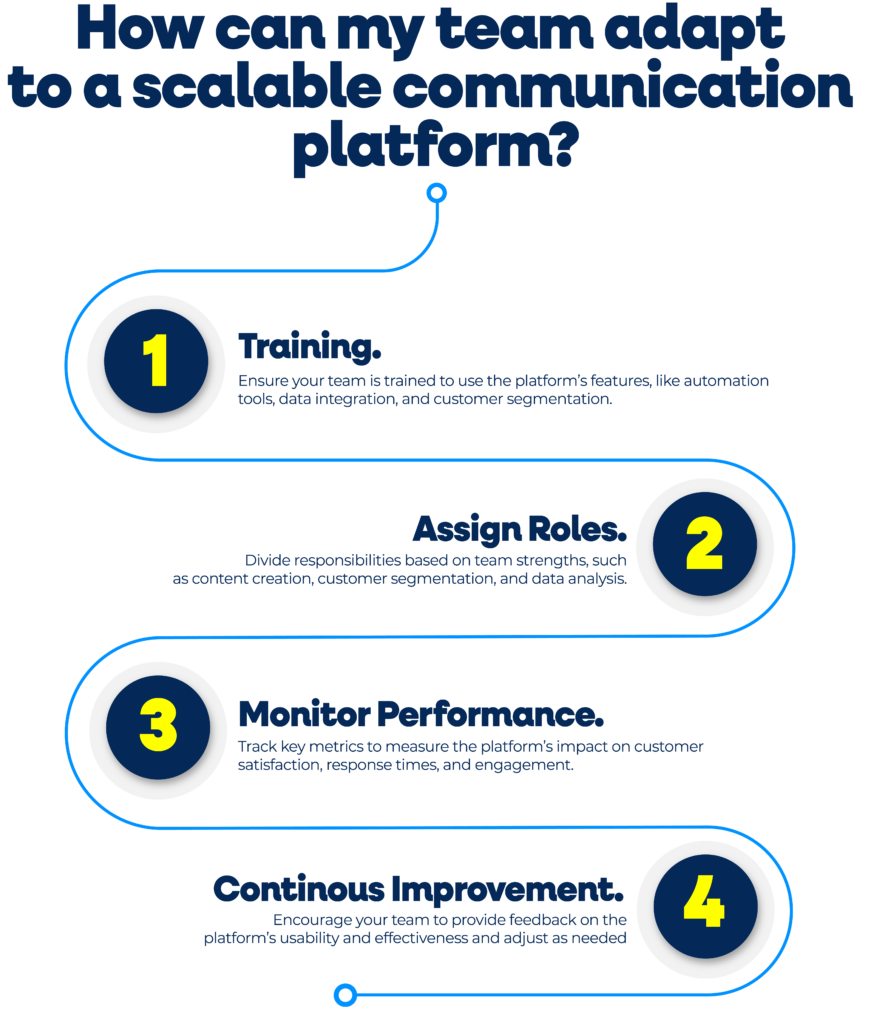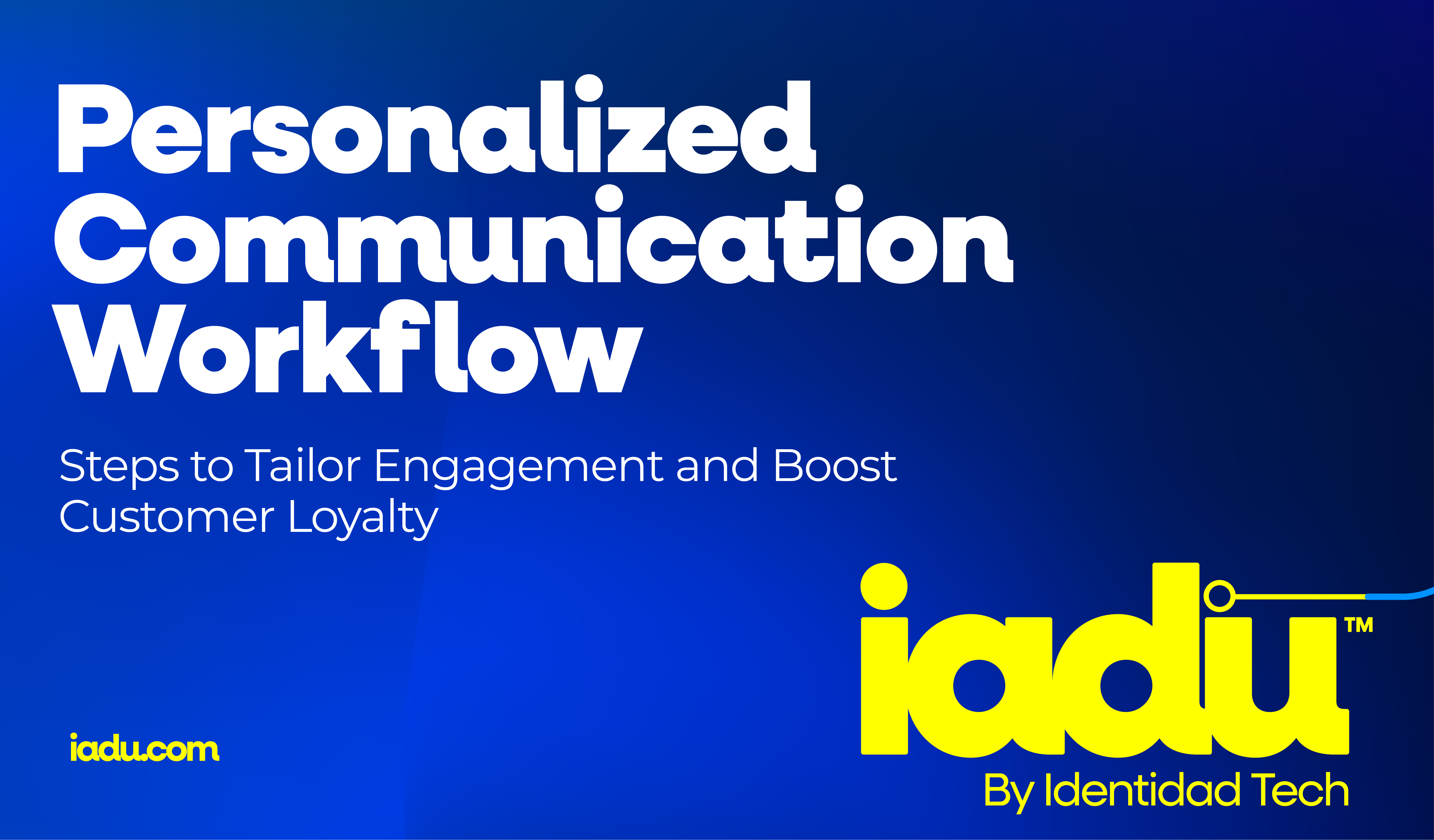Enhancing Retail Loyalty:
The Power of Personalized Communication
2025
Introduction
Capturing customers’ attention and building loyalty are essential but increasingly challenging tasks. With so many brands battling for attention, more than offering outstanding products or competitive prices is needed. To stand out, retailers need to build solid and lasting relationships with their customers, and personalized communication is one of the most effective ways to achieve this.
Personalized interactions, such as tailored messages or exclusive promotions, help make each customer feel valued, heard and understood. By gathering, using, and segmenting customer data and preferences, brands can deliver customized experiences that foster loyalty and encourage repeat purchases. In this blog post, we’ll dive into why personalized communication is vital for customer retention in retail, practical strategies for implementation, and how using integrated platforms can streamline the process.
The Power of Personalized Communication in Retail
Personalized communication goes beyond simply using a customer’s name in an email. It’s about creating experiences that feel unique to each individual, which can be achieved by understanding their preferences, purchase history, and shopping behaviors. This deeper level of personalization allows retailers to build stronger emotional connections with their customers, leading to higher satisfaction and loyalty.
Why is this important? Research consistently shows that consumers gravitate towards brands that take the time to understand and furnish to their individual needs. Here are some compelling data points that highlight the impact of personalization:
• 80% of consumers are more likely to make a purchase when brands offer personalized experiences. – Source: Epsilon.
• Brands that excel at personalization generate 40% more revenue from those efforts than those that don’t. – Source: McKinsey.
Personalization is no longer just a “nice-to-have” feature; it’s a fundamental driver of customer loyalty and retention. In a competitive market, the personal touch often makes customers choose one brand over another, stay engaged, and ultimately become loyal advocates.
Personalized communication goes beyong simply using a customer’s name in an email. It’s about creating experiences that feel uniqueto each individual.
Personalization is no longer just a “nice-to-have” feature; it’s a fundamental driver of customer loyalty and retention.
How to Implement Personalized
Communication Strategies
Implementing a personalized communication strategy might sound complex, but it can be straightforward and impactful with the right approach and tools. Here are some practical ways to use customized communication to build customer loyalty in retail.
1. Customized Messaging:
• Direct Messages Based on Customer Behavior: By analyzing customers’ browsing habits, purchase history, and recent interactions, you can send targeted messages that resonate. For example, if a customer recently browsed winter jackets, a timely message like, “We noticed you were interested in our winter collection—here’s an exclusive discount just for you!” can significantly increase the likelihood of purchase.
• Celebratory Messages: Personalized messages for special occasions, like birthdays, anniversaries, or customer membership milestones, are highly effective. A message like “Happy Birthday, [Name]! Here’s a special 20% discount to celebrate with you” adds a personal touch and fosters a sense of appreciation.personalization and ensures that you have a comprehensive view of each customer’s journey with your brand.
2. Tailored Promotions:
• Segment-Based Offers: Divide your customer base into segments based on shopping behavior, demographics, or engagement level. For instance, loyal customers could receive exclusive access to new collections, while new customers might get a welcome discount. Segmenting your audience ensures that promotions feel relevant and targeted, increasing the chances of conversion.
• Location-Based Deals: For retailers with physical stores, location-based promotions can help drive in-store traffic. Imagine a customer walking by your store—an SMS or app notification about a limited-time discount could motivate them to come in and shop. These hyper-relevant, location-specific promotions add convenience and urgency, enhancing the overall shopping experience.
3. Using Platforms to Simplify Personalization:
• Centralized Data Management: A platform that integrates CRM, customer data, and communication tools allows you to easily access all the information needed to tailor interactions. Centralizing customer data simplifies personalization and ensures that you have a comprehensive view of each customer’s journey with your brand.
• Automation Tools: Automating personalized messages and promotions saves time and allows for scalability. With automation, retailers can send hundreds or thousands of customized messages, ensuring every customer receives timely, relevant communication without adding to the workload. This strategy allows marketing teams to focus on strategy rather than execution, making personalization both efficient and impactful.
Personalized Communication Workflow
For a clearer understanding, review the following workflow designed to implement personalized communication effectively.
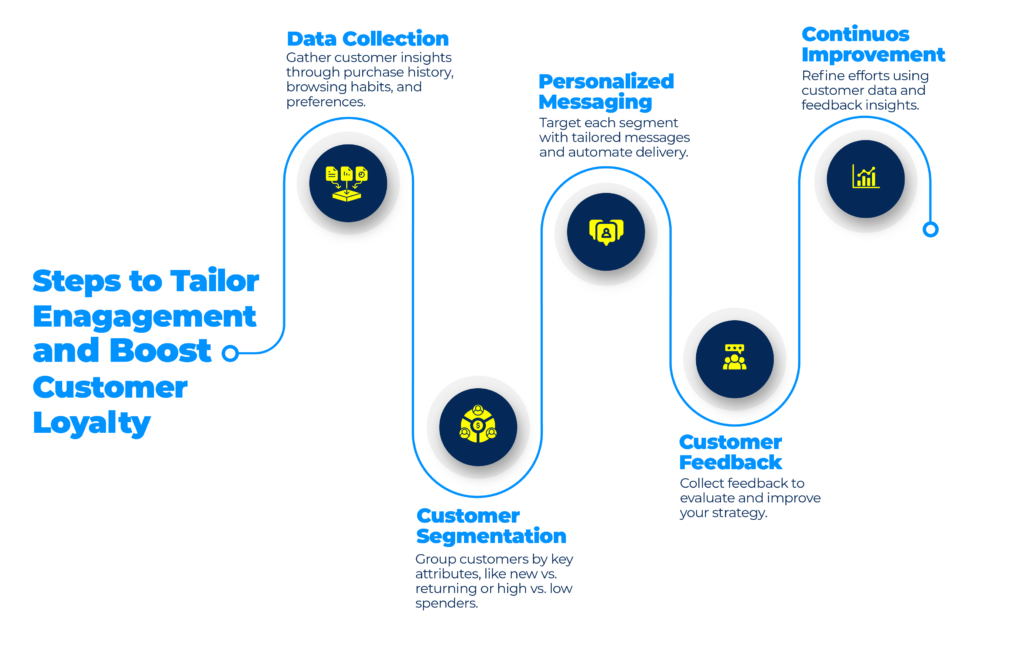
Benefits of Personalized Communication
Personalized communication is not just beneficial—it’s transformative. Here are some key advantages that highlight why it’s worth the investment:
• Enhanced Customer Experience: Personalized interactions make customers feel understood and appreciated. When customers receive relevant communications, they have a positive brand perception and are encouraged to engage more with your brand.
• Increased Retention Rates: When customers feel a personal connection with a brand, they’re more likely to remain loyal and less likely to switch to competitors. This loyalty translates to higher lifetime value and lower churn rates.
• Higher Engagement Rates: Personalized messages and promotions tend to have higher open, click-through, and conversion rates, leading to more significant ROI on marketing campaigns. Customers are more likely to respond positively to messages that speak directly to their needs.
• Efficient Marketing: With automation tools and data integration, marketing teams can manage personalized communication at scale. This efficiency allows them to allocate more time to strategy and creative thinking than manual processes.
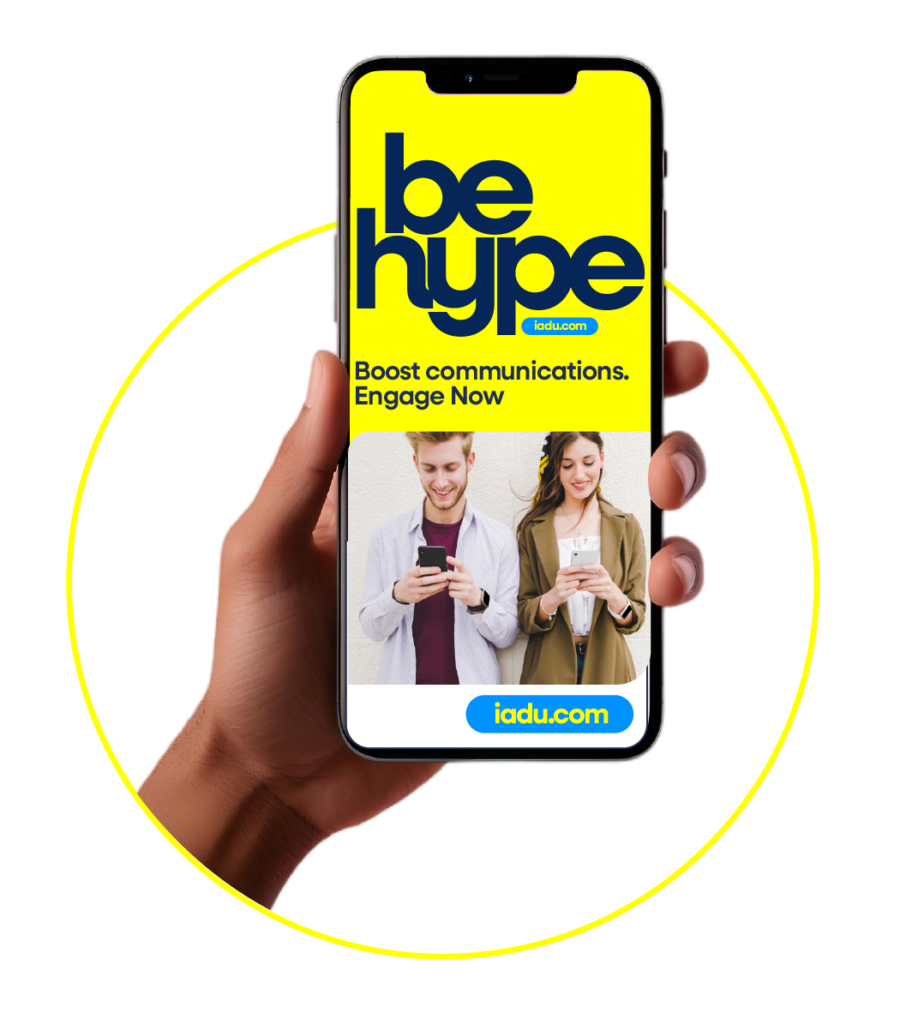
Say Hello!
Leave us your contact and one of our specialist will get in touch!
© 2025 IADU BY IDENTIDAD TECH
© 2025 IADU BY IDENTIDAD TECH

